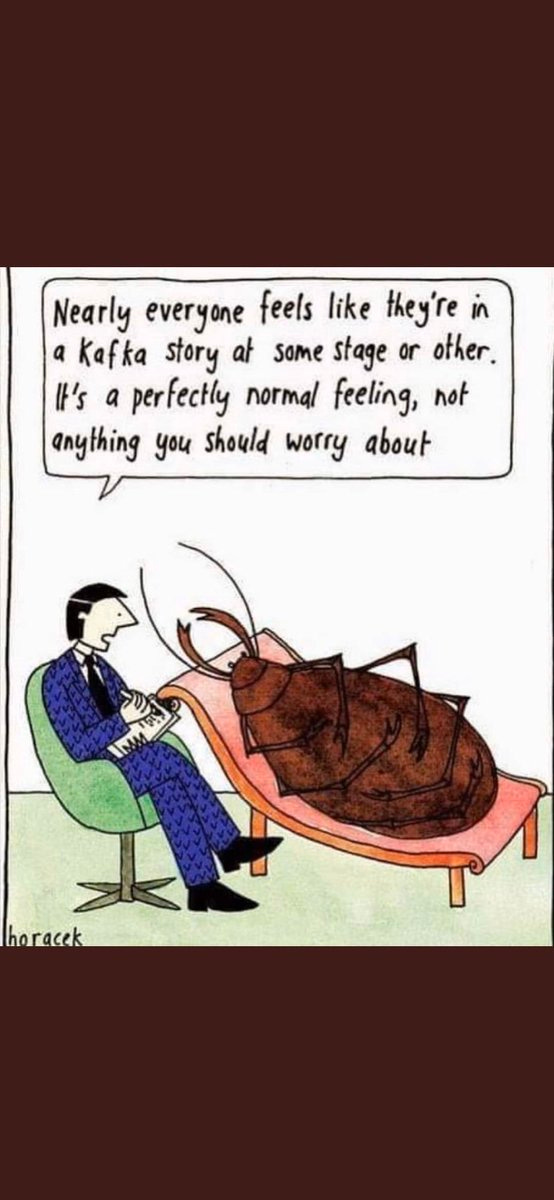Do milk-drinking, wheat-eating vegetarians make better businessmen (and highly fertile couples)?
Under what law has LinkedIn permanently banned a user for targeting Byju's?


1 by 9: All systems go
Jawed Ashraf was, by some accounts, one of Narendra Modi’s speech writers before he was posted to Singapore as high commissioner. He was also the PMO official who conducted “parallel negotiations” with the French aviation giant Dassault over the head of then defence minister Manohar Parrikar.
Fittingly, he is India’s ambassador in France as the first five of the 36 Rafale aircraft ordered by India make their way in a “government-to-government deal. And the adjectives roll off like in a Modi speech.
The takeoff of the aircraft for Ambala naturally sent many into paroxysms of delight (here, here) prompting one to say that India’s defence procurement provokes the same level of excitement “that Indians in the 1980s and 1990s had of relatives from foreign bringing back goodies”.
The journalists who reported the defence ministry’s objections, the exaggerated price India was paying, the film deal that suggested a quid pro quo, have understandably stayed silent. But as Ladakh simmers, here’s a good counter question.


Also read: Ravi Nair, the journalist who gave the Rafale stories a boost

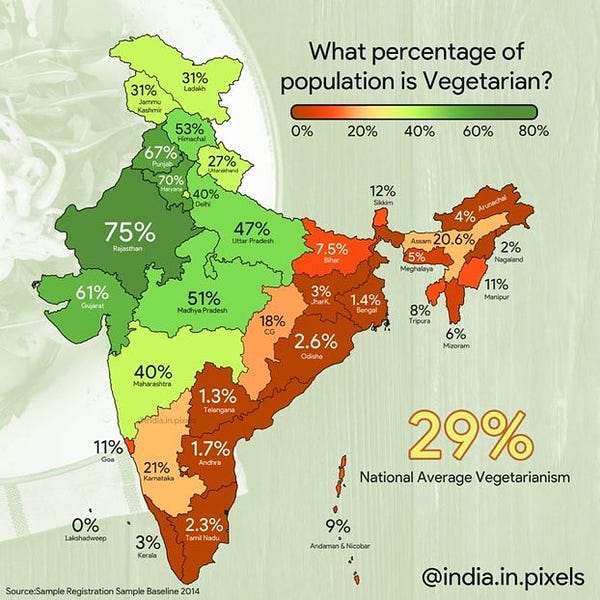
2 by 9: Milk, wheat and veggies
Are you what you eat? Yes, suggests Uday Tharar, formerly of Morgan Stanley and Nomura. The best business minds—the Gujaratis, the Rajasthanis, the Punjabis— come from India’s most vegetarian states.
With a national average of 29% vegetarianism, India’s business goose, it would appear is cooked, except that Tharar himself admits this is merely an observation, not a conclusion.
Other numbers crunched by India in Pixels shows that these same states also have India’s highest per capita availability of milk, are mostly wheat-eating, and their men and women drink less alcohol than the Dravidian states.
Then again, these wheat-eating, milk-drinking, less-alcoholic states have some of the more underweight children, not to mention their high fertility rate. Or, loan defaulters. Or, untouchability.
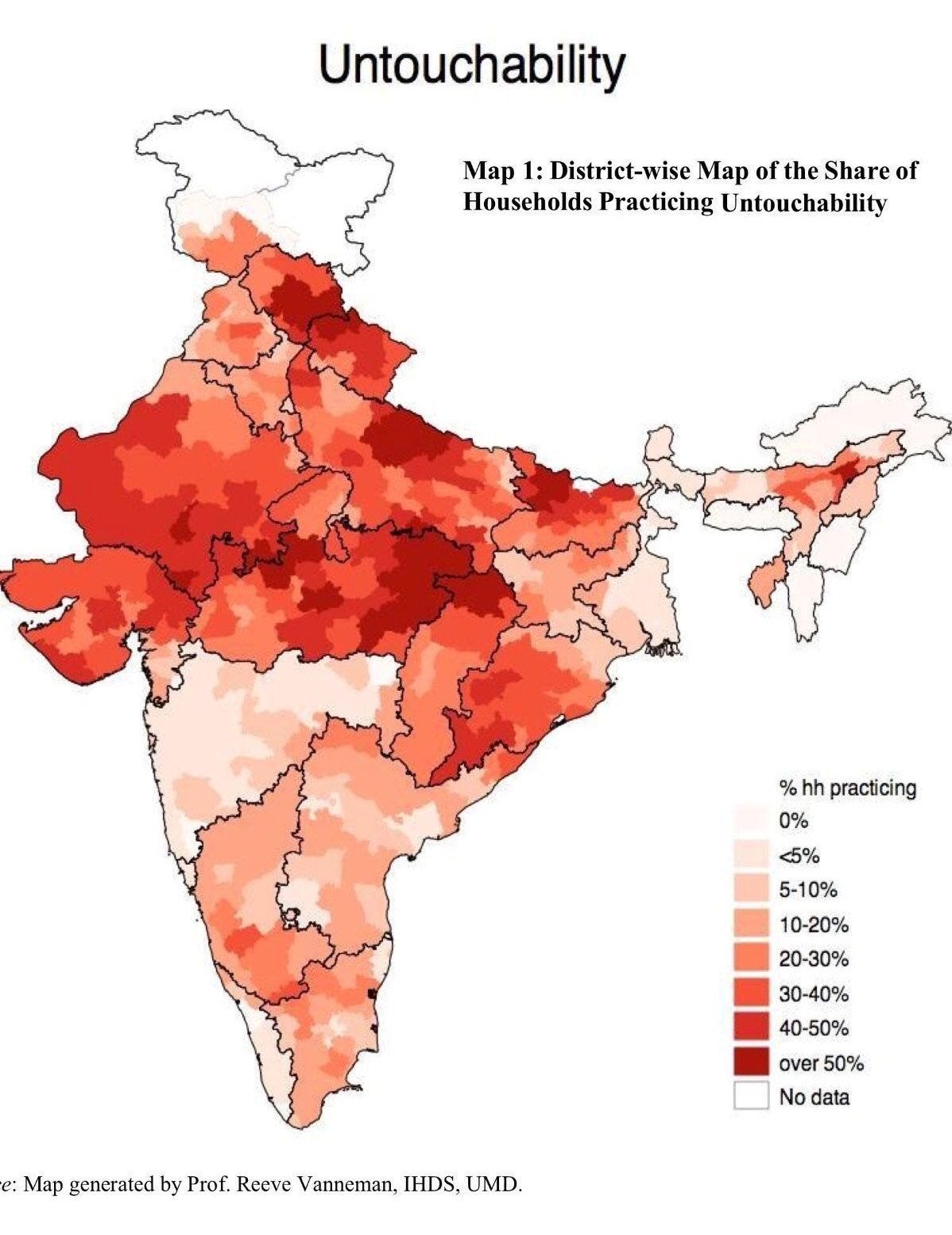
External reading: The myth of the Indian vegetarian nation
3 by 9: Om learning
That Silicon Valley social media firms are operating by a different playbook in India has been obvious for a while now. What is held up by Facebook as a textbook case of inciting hatred in the United States is par for the course here.
All it takes for Twitter to remove an account, or disable posts, is a nudge and a wink.
Over the weekend, Facebook unilaterally blocked a website named after the slain journalist Gauri Lankesh before restoring it, claiming a “technical error”.
While the unseen hand guiding these actions is easy to speculate upon, what explains LinkedIn permanently removing Aniruddha Malpani for complaining against the toxic culture at the learning app, Byju’s?

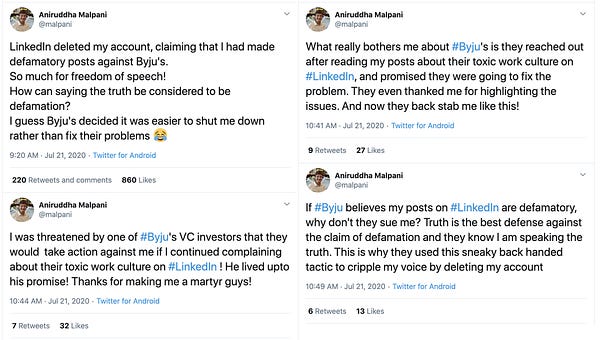
4 by 9: The art of giving
The heartlessness of modern Bangalore came into focus when migrants were locked up to prevent them from returning home during the Coronavirus lockdown. Here’s an undated video that somewhat compensates for the blame the IT city copped.


5 by 9: PM ‘eats’ secret files
The world’s coolest prime minister, the one who flattened the curve, no, not the one you are thinking of but New Zealand PM Jacinda Ardern, has turned 40. And her office gave her something she takes home every night.
An edible briefcase with the perfect number lock.
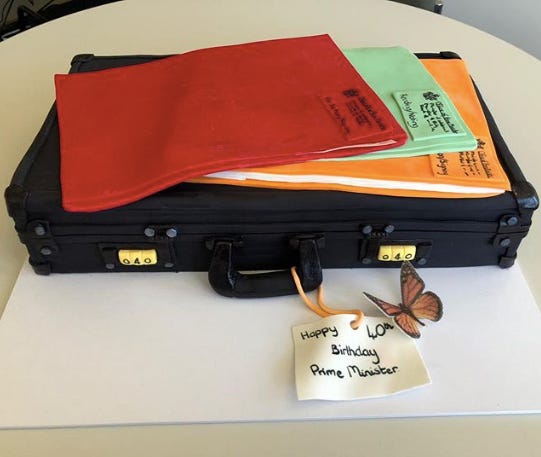
Narendra Modi who wishes some really weird and dodgy people on their birthday, hasn’t greeted the supremely efficient and empathetic New Zealand counterpart yet.
How cool can a woman who became PM at 37 be? See.


External reading: What Narendra Modi can learn from Jacinda Ardern
6 by 9: Know logo
Had not 2020 proved such a KLPD (Kab Lautenge Purane Din), the 32nd Olympic Games would have been into its fifth day today. But Coronavirus wanted Olympic hopefuls to “sow paddy, swat mosquitoes, mop the floor, and paint for charity.”
Tokyo Olympics 2020, if you didn’t know, had an awesome logo created by British designer Daren Newman, who is now selling an aptly modified design on a T-shirt through Everpress.

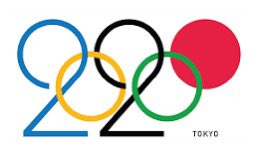
7 by 9: Dhobi manchurian
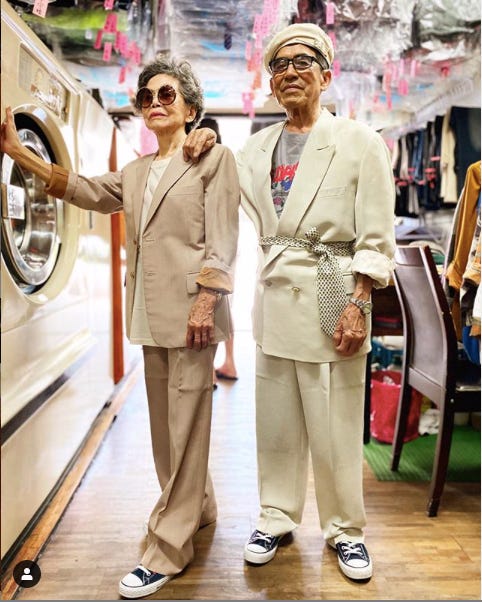
He is 83. She is 84. All they have done for the last 70 years is other people’s laundry, but BBC is suddenly covering them, so is the New York Times. Reason: Chang Wan-ji and Hsu Hsiu-e are the new kids on the Instagram block.
Their Instagram handle “Want Show As Young” has racked up over 450,000 followers after the couple were convinced by their grandson to pose in abandoned clothes not picked up by clients and post them on Instagram.

And, finally
Words of reassurance from the author of My Beautiful Laundrette, Hanif Kureishi.
Today I learned
Manmohan Singh in an interview with the Financial Times in the early 1990s felt China’s rise was “fake news based on dodgy data”.
Like what you see? Give us a shout. Don’t? Tell us why. Have a tip? Mail us.
Spread the word about The Net Paper, the world’s first crowd-sourced juicepaper.




